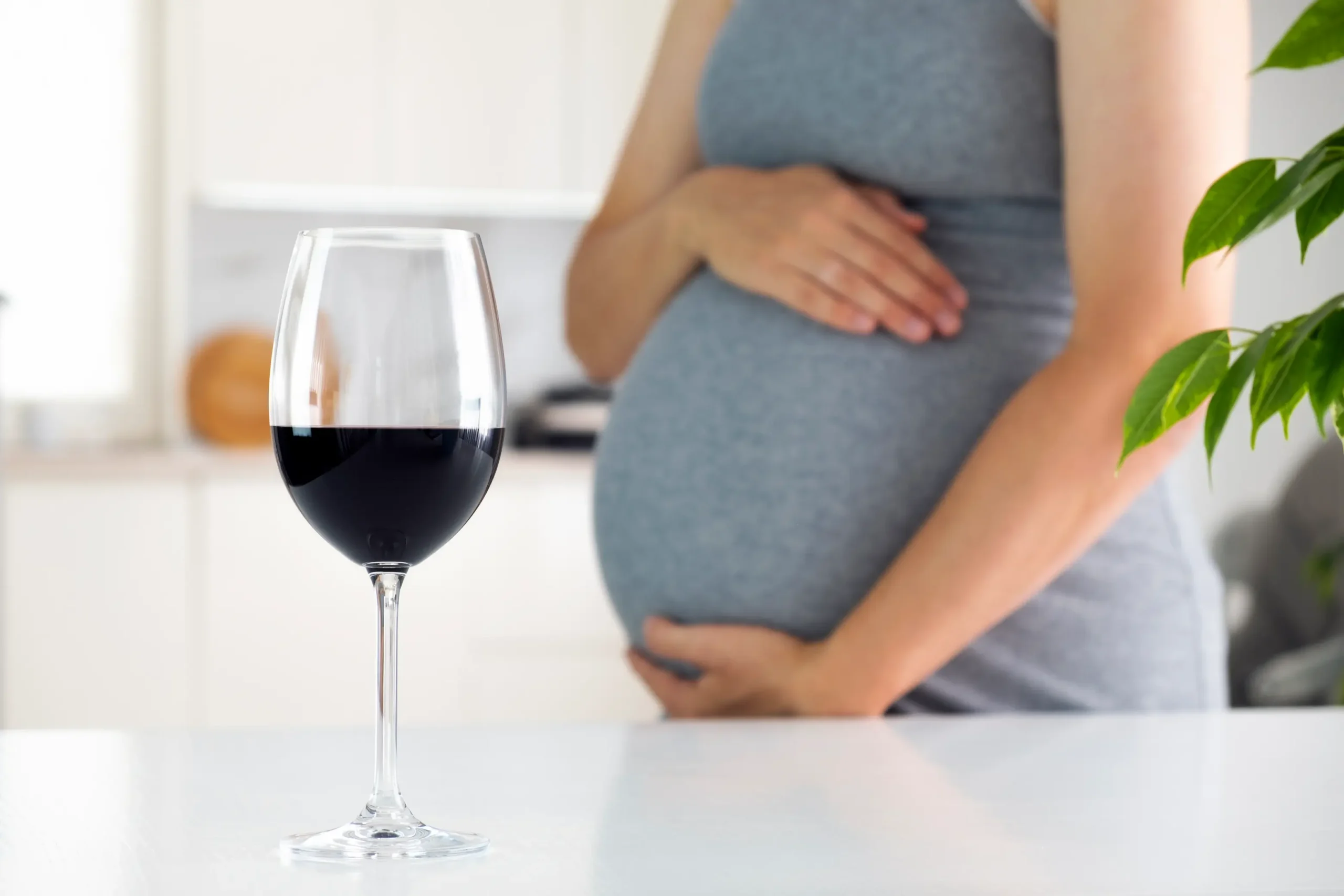
Taking a Bath After a Membrane Sweep: Precautions and Advice

You’ve probably heard it often and you’ll continue to hear it: drinking alcohol during pregnancy is strongly discouraged. Alcohol can indeed have harmful effects on your health and that of your baby.
Alcohol and pregnancy: here’s everything you need to know.
Alcohol can be found in various types of drinks and at different levels: wine, beer, champagne, aperitifs (muscat, port, etc.), so-called “strong” spirits (vodka, rum, whisky, etc.). Traces can also be found in fermented drinks like kefir, especially when homemade, as well as in certain sauce-based dishes. Cooking does not guarantee 100% evaporation of the alcohol used in a recipe.
It is recommended to refrain from drinking alcohol during pregnancy, regardless of the stage of pregnancy and regardless of the quantity. Scientific studies cannot currently establish if there is a safe level of alcohol for the baby.
Note: According to the 2021 National Perinatal Survey, 3% of pregnant women reported having consumed alcohol during their pregnancy. This figure is probably underestimated due to reporting bias: since it’s strongly discouraged, some women may downplay their consumption when interviewed by healthcare professionals.

Alcohol crosses the placental barrier and reaches the fetus in utero. According to Santé Publique France, alcohol consumption during pregnancy is the leading cause of non-genetic intellectual disability in children in France.
Alcohol is therefore a dangerous substance for your health in general, and especially during pregnancy as it can also have disastrous consequences on the health of your fetus.
Drinking alcohol during pregnancy is associated with a higher risk of:
Alcohol is not usually the primary cause of these events, but it is considered one of the risk factors, alongside smoking, drug use, and unfavorable socio-economic conditions, among others.
Want to learn more? Feel free to download the May app, where you’ll find plenty of resources to support and guide you throughout your pregnancy.
Alcohol circulates in your blood and crosses the placental barrier. In other words, your baby will have the same blood alcohol concentration as you. However, your fetus doesn’t have the same size as you, nor does it have a fully functioning liver! The difference is that their liver, still developing during the embryonic stage, cannot properly metabolize alcohol. Currently, there is no established threshold defining the dose at which alcohol becomes toxic to the fetus.
Firstly, alcohol is teratogenic, meaning it can cause birth defects in the fetus during the first trimester. It is important to stop drinking alcohol as soon as you learn you are pregnant. If you consumed alcohol before knowing you were pregnant, inform your healthcare provider. Scheduled screening ultrasounds during pregnancy will help check for any malformations in your baby.
Alcohol is also neurotoxic. It can therefore have harmful effects on the fetus’s brain throughout pregnancy. Drinking alcohol increases the risk of mental retardation in your child. This could mean delays in acquiring language, writing, fine motor skills, and possibly intellectual disabilities.
Additionally, a child exposed to alcohol in utero may also develop behavioral disorders and show signs of aggression and hyperactivity. They may also suffer from mental and/or cognitive disabilities such as dyslexia, dyspraxia. This condition is known as Alcohol-Related Neurodevelopmental Disorder (ARND).
Fetal Alcohol Syndrome (FAS) combines malformations and neurological impacts. The child may be born with:
Not all children exposed to alcohol will develop FAS, but they may still present with after-effects.
Did you know?: September 9 is the International Fetal Alcohol Syndrome Awareness Day.

It is strongly advised to avoid drinking alcohol during your pregnancy, or ideally even during the pre-conception period, to prevent any physical or neurological damage to your future child. If you drank alcohol at the beginning of your pregnancy without knowing you were pregnant, the Teratogenic Agents Reference Center (CRAT) offers reassurance: “the ‘zero alcohol’ guideline should not create undue worry for women who drank alcohol unaware of their pregnancy. A case-by-case analysis should be conducted to assess the actual risk (especially for episodes of heavy drinking), and this consumption should be corrected for the remainder of the pregnancy.” 
If you are struggling with alcohol addiction, it is essential to talk to your healthcare professionals so they can offer you appropriate care. Reducing your alcohol consumption during pregnancy is a necessity. Your gynecologist, midwives, and the people supporting you during your pregnancy are there for you and to support you. If you have difficulty quitting, you can also seek help from psychologists. There is also a confidential and free hotline, 0 980 980 930, available from 8 a.m. to 2 a.m., 7 days a week. More information can be found on the Alcohol Info Service website.
For the smooth progress of your pregnancy and the healthy development of your baby, it is important to avoid consuming alcohol, even in small quantities.

**
Photo credits: gpointstudio | Prostock-studio | ta_bu | snegok1967
This text was translated from French by an artificial intelligence. The information, advice, and sources it contains comply with French standards and may therefore not apply to your situation. Make sure to complement this reading by visiting the May ES/UK app and consulting the healthcare professionals who are supporting you.
Some of the links below may no longer be active. In that case, please feel free to refer directly to the relevant websites.
Santé Publique France : quels sont les risques de la consommation d’alcool pour la santé ?
Ameli : Zéro alcool pendant la grossesse
HAS : Troubles causés par l’alcoolisation fœtale
These resources might interest you

Taking a Bath After a Membrane Sweep: Precautions and Advice


Coloring your hair while pregnant: what precautions should you take?